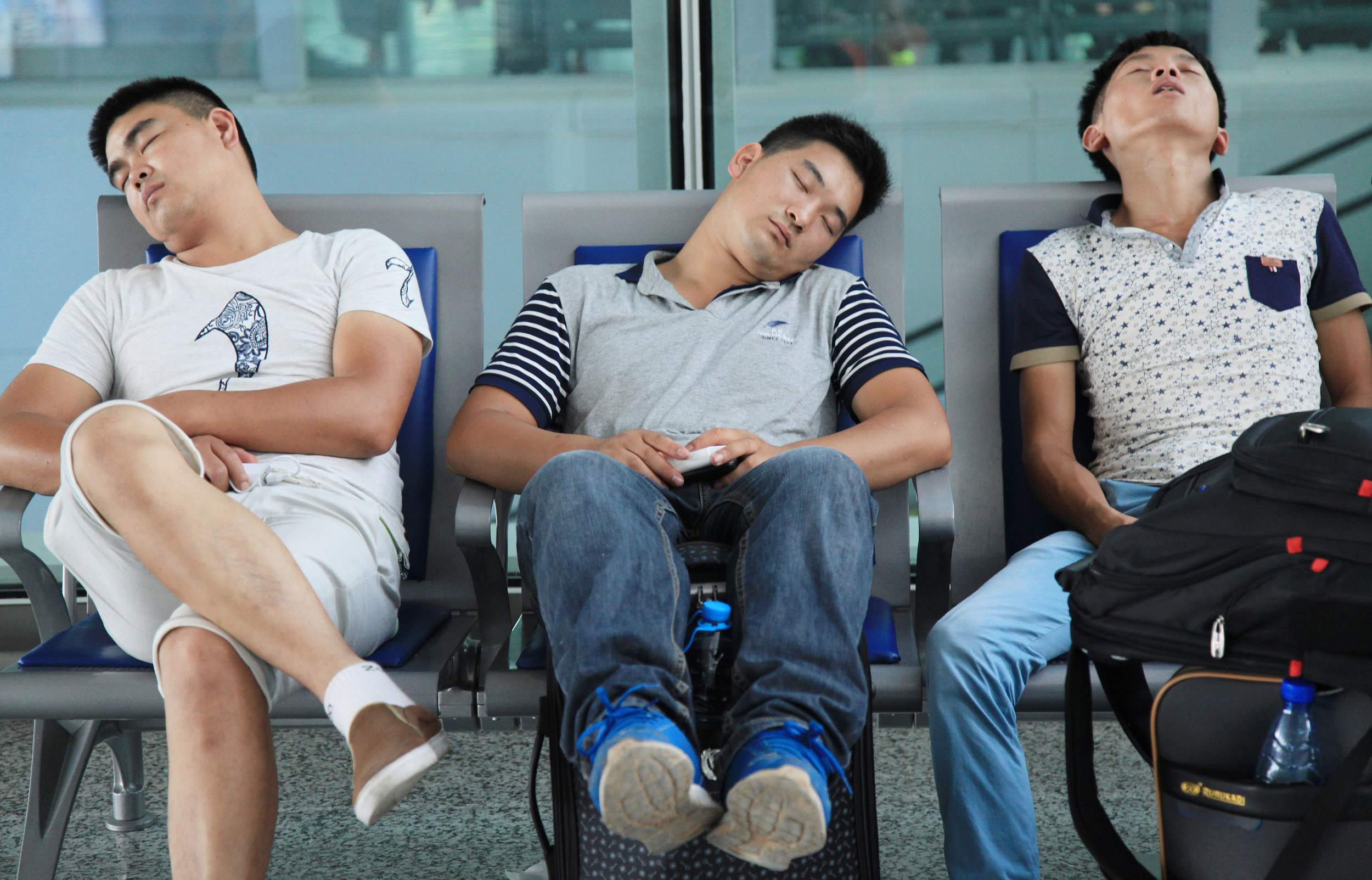Having something to wake up to can result in a good night's sleep, a new US study has shown, putting to bed doubts about the viability of drug-free alternatives, such as cultivating goals in life, as a clinical tool to assist those who suffer from nighttime disturbances.
The results, published on Monday in the journal Sleep Science and Practice, are the culmination of three years of tracking the sleeping patterns of 825 people, aged between 60 and 100.
Previous studies between purpose in life and sleep showed that high levels of motivation are associated with limited physical movement when lights are off – an indication of sound sleep – and less problematic sleeping hours – either over-sleeping or not getting enough shuteye.
However, this is the first time that a study has probed and established connection between a fulfilling life and the risk of developing sleep disorders in older adults.

Cultivating a meaningful life betters sleep quality? I'll sleep on it. /VCG Photo
Purposeful life, sound sleep
Researchers at the Illinois-based Northwestern University found that elderly people who have a sense of purpose not only enjoy better sleep quality, but also exhibit lower risk of developing sleep disorders.
The focus was on sleep apnea, a condition characterized by repeated pauses in breathing, lasting anywhere between a few seconds to minutes, which leads to reduction in blood oxygen. If left untreated, sleep apnea increases the risk of serious health conditions, such as strokes and heart attacks.
The disorder was a major contributor to the death of Star Wars actress Carrie Fisher, who passed away in January, according to a coroner statement.
A 2016 joint study by Peking University and the University of Pennsylvania estimated that one in five Chinese adults suffer from sleep apnea, with over 80 percent of them neither diagnosed nor treated.
The US researchers also looked for symptoms of restless leg syndrome (RLS), a disorder causing an irresistible urge to move one's leg, and REM (rapid eye movement) behavior disorder (RBD), a parasomnia which sees sleepers "act out" vivid and unpleasant dreams during the REM sleep stage, hence the name.

Fatigue is one of the major pervasive health issues in modern times. /VCG Photo
"We found that higher levels of purpose in life were generally protective against the occurrence of sleep apnea and RLS as well as the onset of sleep apnea and RLS over the following 1 to 2 years," said the scientists, arguing that motivated people are mentally and physically healthier than those who have lost their life's compass, which could explain the low risk of sleep disturbances.
Despite the study researching nighttime nuisances in a sample of elderly people, who are more prone to such disorders, Jason Ong, associate professor of neurology at Northwestern University and co-author of the paper, said the results are applicable to all people, according to the Daily Mail.
What is the meaning of a meaningful life?
Tedious philosophical answers aside, the researchers conceptualized purpose in life through the goals and aims participants have, their sense of direction and whether they see any purpose in their pasts or are particularly excited about their lives' outlook.
"Purpose in life is generally conceptualized as one’s sense of meaning and directedness in his/her life, essentially having aspirations and goals for the future and feeling that experiences in life are meaningful," read the paper.
Participants' motivational levels were examined through a 10-item questionnaire, according to which they were asked to rate their agreements to statements such as “I feel good when I think of what I’ve done in the past and what I hope to do in the future,” or “some people wander aimlessly through life, but I am not one of them.”
They also filled a 32-question survey to report about their sleep quality and the presence, if any, of nighttime disorders.

People in China and the world are not getting enough sleep. /VCG Photo
A solid night's sleep has become a fleeting dream to innumerable insomniacs and light sleepers in modern times, with red eyes, puffy lids and wide open yawning mouths becoming the symbol of a society suffering from sleep deprivation.
Scores of adults around the globe are continuously failing to fall asleep, maintain uninterrupted slumber, and meet the recommended amount of shuteye – at least seven hours – putting their health and well-being at risk, especially as years slip by.
According to a March 2017 report by the China Sleep Research Society, 73 percent of respondents admitted having problems falling asleep, 13 percent of whom said being sleep deprived causes them pain.
A whopping 91 percent of the 60,000 people questioned said they feel tired after sleeping and are unable to wake up on time because of the poor sleep quality.







